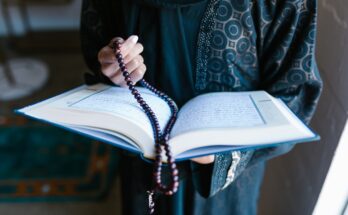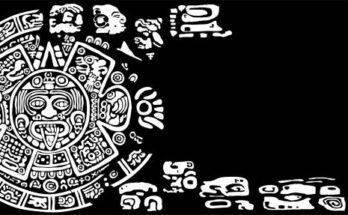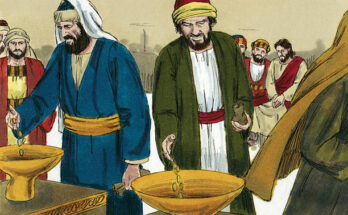Marriage, a societal institution with deep roots in human history, is intricately connected to religious traditions around the world. The union of two individuals in matrimony is often considered sacred, and religious beliefs and practices play a significant role in shaping the rituals, values, and perspectives surrounding marriage. This exploration delves into the dynamic interplay between religion and marriage, examining how various faith traditions influence the institution of marriage, the rituals involved, and the challenges faced within religiously grounded marital relationships.
Religious Influence on Marriage: Sacred Unions and Divine Blessings
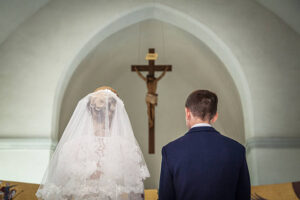 (Photo from iStock)
(Photo from iStock)
Across diverse cultures and faiths, marriage is often imbued with spiritual significance, representing a sacred covenant between individuals and, in many cases, a divine entity. In Christianity, for example, marriage is considered a sacrament, a solemn and sacred rite blessed by God. Similarly, in Islam, marriage is viewed as a Sunnah (tradition of the Prophet), and the Quran emphasizes the spiritual and moral dimensions of marital relationships.
Judaism places a strong emphasis on the covenantal aspect of marriage, considering it a sacred agreement between spouses and with God. Hinduism sees marriage as a sacred duty and a means to fulfil one’s dharma (righteous duty). These examples highlight the pervasive influence of religious beliefs in shaping the conceptualization and sanctification of marriage.
Rituals and Ceremonies: Uniting the Sacred and the Mundane
Religious traditions often prescribe specific rituals and ceremonies that accompany the marital union, adding a layer of sanctity to the nuptial bond. These rituals vary widely across different faiths, yet they share common threads of symbolism, commitment, and communal celebration.
In Christian weddings, the exchange of vows before God and witnesses is central to the ceremony, symbolizing the commitment to a lifelong partnership. In Hindu weddings, the sacred fire (Agni) is a witness to the vows, and rituals like the Saptapadi (seven steps around the sacred fire) signify the couple’s journey together in the presence of divine forces.
Islamic marriages involve the recitation of specific vows, often with the reading of verses from the Quran, reinforcing the spiritual foundation of the union. Jewish weddings include the signing of the ketubah (marriage contract) and the breaking of a glass, both laden with symbolic meanings related to commitment and remembrance.
Values and Ethics: Navigating Marital Life Through Religious Principles
Religious teachings often provide a moral and ethical framework for marital relationships, offering guidance on issues such as fidelity, communication, and family dynamics. For example, Christian teachings emphasize the importance of love, selflessness, and forgiveness within marriage, drawing from biblical passages like 1 Corinthians 13, known as the “Love Chapter.”
Islamic principles guide marital relationships through concepts such as compassion, mutual respect, and shared responsibility. The Quranic verse (30:21) highlighting the notion of “spousal tranquillity” underscores the emphasis on harmony within the marital bond.
In Hinduism, the principles of dharma (duty), artha (material well-being), kama (pleasure), and moksha (liberation) provide a holistic framework for understanding and navigating the complexities of married life.
Judaism places significance on the concept of “shalom bayit,” or peace in the home. Promoting the idea that a harmonious family life contributes to a broader sense of peace in the world.
Challenges Within Religious Marriages: Balancing Tradition and Modernity
 (Photo from iStock)
(Photo from iStock)
While religious teachings offer valuable guidance, they can also present challenges as individuals seek to balance tradition with the evolving demands of modern life. One challenge lies in reconciling traditional gender roles prescribed by certain religious doctrines with the contemporary pursuit of gender equality.
In many religious traditions, specific roles and responsibilities are assigned to husbands and wives. Based on traditional interpretations of sacred texts. Navigating these roles in a world that increasingly values equality and individual autonomy. Requires careful consideration and reinterpretation of religious teachings.
Issues related to reproductive rights, contraception, and family planning can also be sources of tension within religious marriages. While some faith traditions provide clear guidance on these matters. Individuals may grapple with the practical implications of religious teachings in the context of their personal lives and societal expectations.
The Evolving Landscape: Adapting Religious Marriages to Modern Realities
In response to the challenges presented by changing social norms, some religious communities have engaged. In a process of reinterpretation and adaptation. Progressive religious movements within Christianity, Judaism, and Islam, for example, advocate for a more inclusive and egalitarian approach to marriage. They challenge traditional gender roles, promote LGBTQ+ inclusion, and emphasize the core values of love, compassion, and justice.
In many cases, religious leaders and scholars engage in theological discussions to re-examine. And reinterpret sacred texts in light of contemporary ethical considerations. This process of reinterpretation allows for the continued relevance of religious teachings. While acknowledging the evolving understanding of human rights and social justice.
Interfaith initiatives also play a crucial role in fostering understanding and cooperation between individuals of different religious backgrounds. These initiatives provide spaces for dialogue, education, and the celebration of shared values. Contributing to the creation of a more inclusive and tolerant society.
Conclusion: A Tapestry of Faith and Love
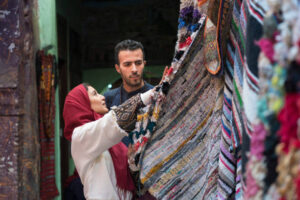 (Photo from iStock)
(Photo from iStock)
The interplay between religion and marriage weaves a rich tapestry of rituals, values, and challenges that reflect the diverse. And dynamic nature of human relationships. While religious traditions provide a foundation for the sanctification. And ethical guidance of marital unions, they must also adapt to the complexities of the modern world.
Religious marriages, grounded in faith and love, have the potential to be sources of strength, support, and resilience. The ongoing dialogue within religious communities. The reinterpretation of sacred texts, and the embrace of inclusivity contribute to the evolution of religious perspectives on marriage.
Ultimately, the intersection of religion and marriage invites individuals and communities to engage in a continuous process of reflection. Adaptation, and understanding. But, also responsive to the evolving needs and aspirations of individuals and societies. Hence, different religions have different marital faiths which people follow themselves.
Reference:
Brigham Young University
Want to know about creation of the world, click on the link below:
How Can Religion Be Created? Exploring the Origins and Evolution


